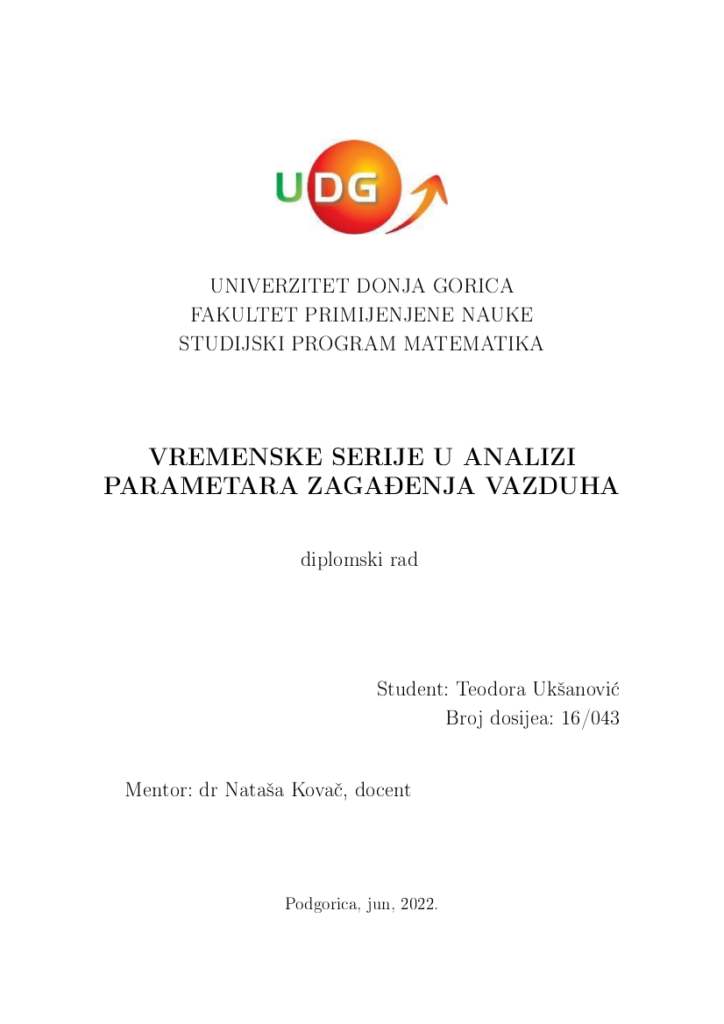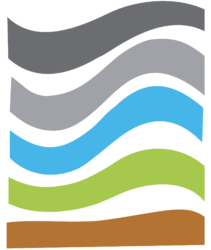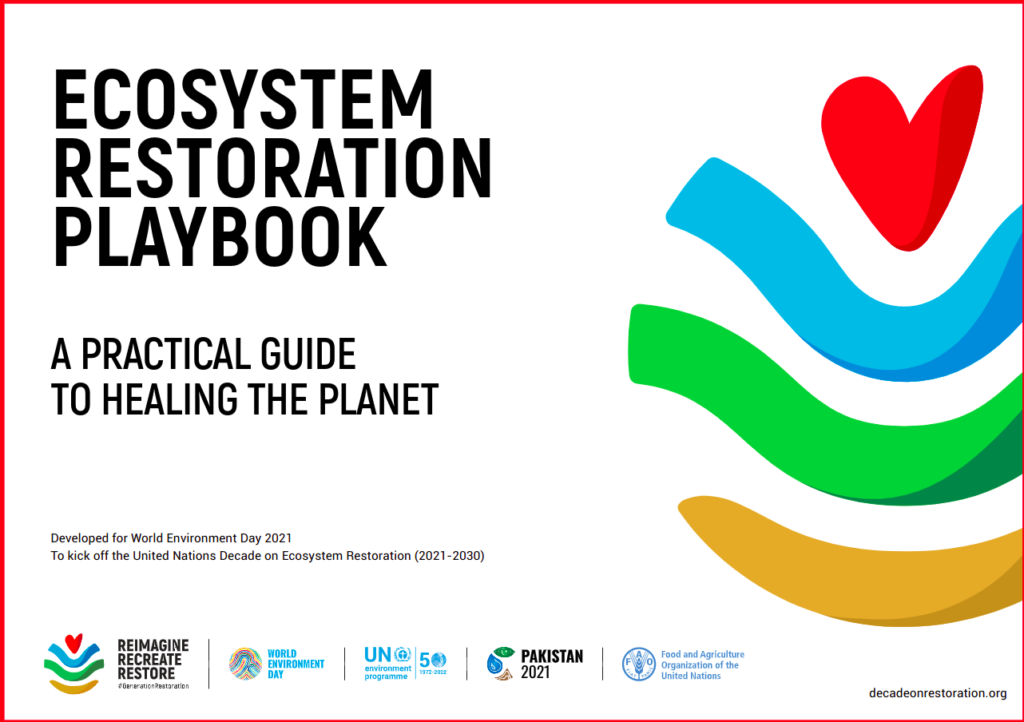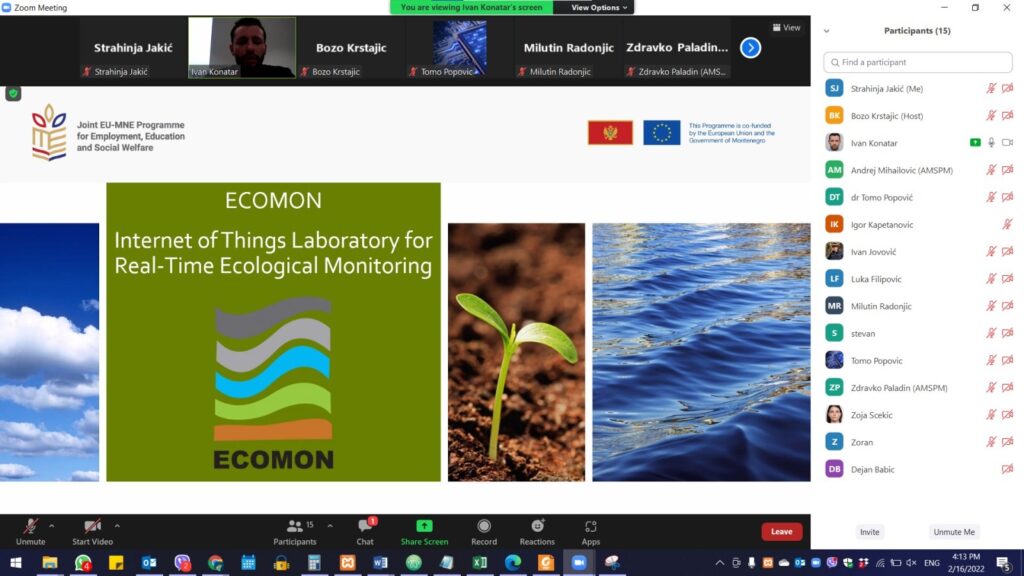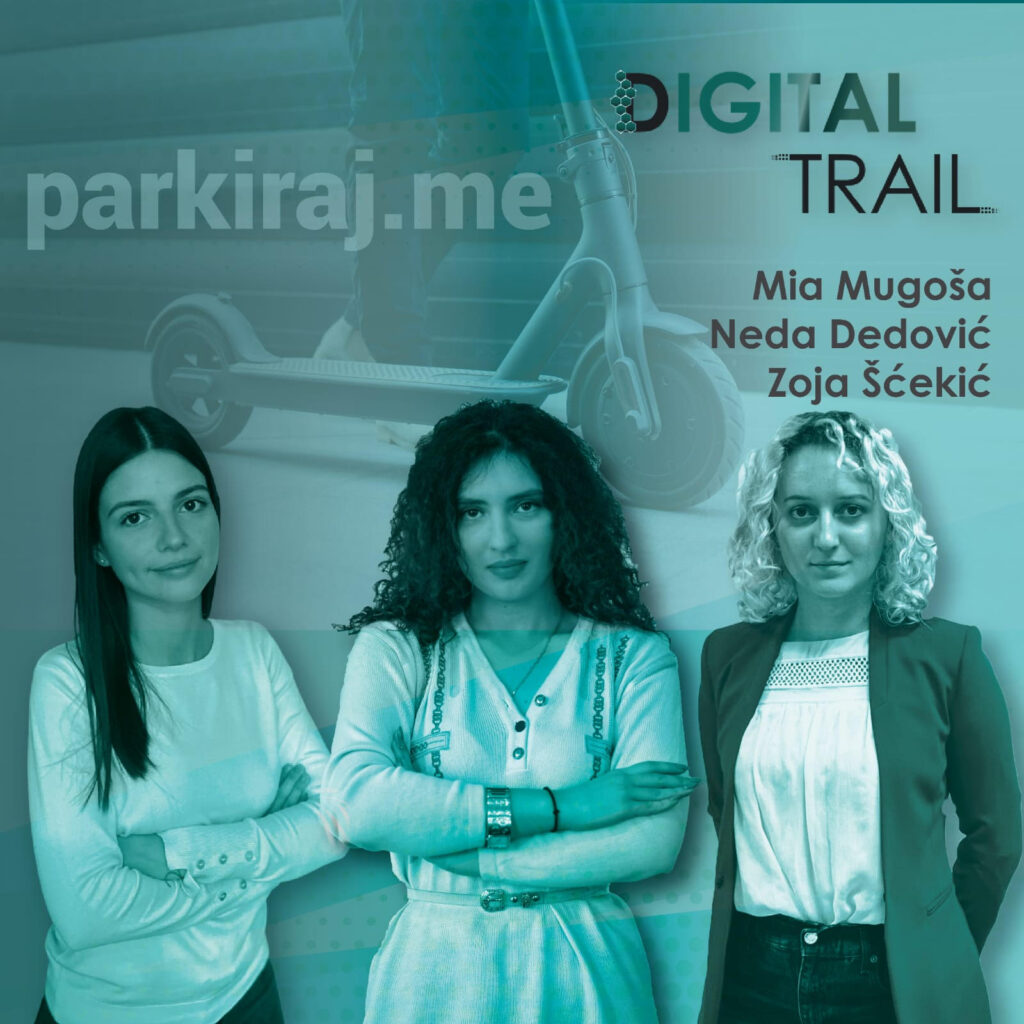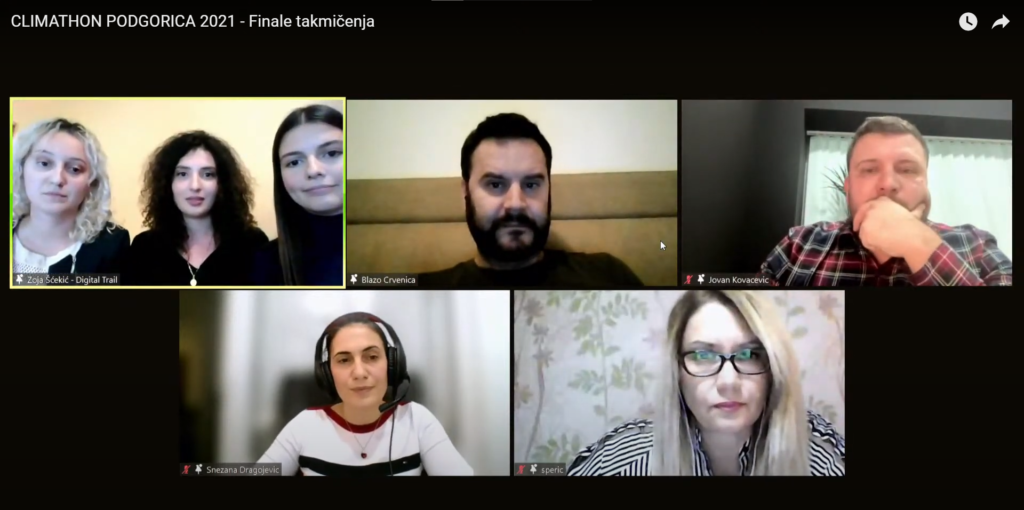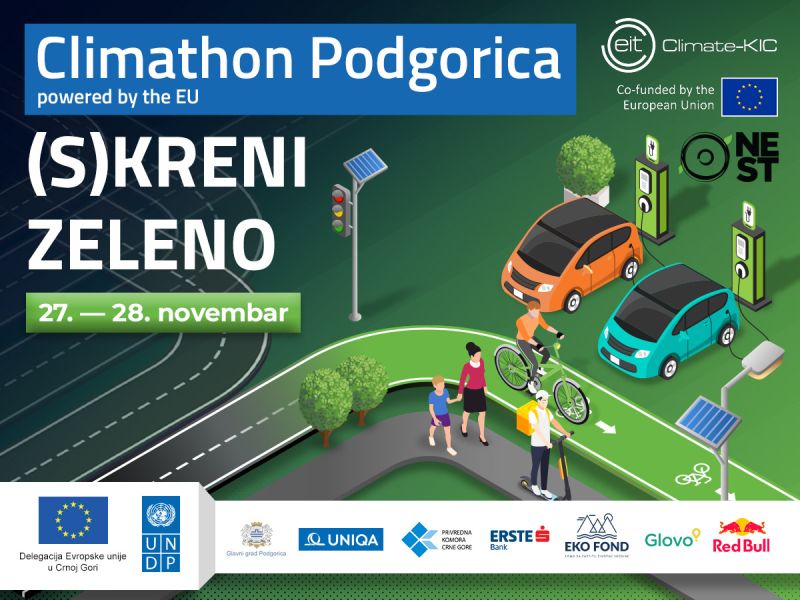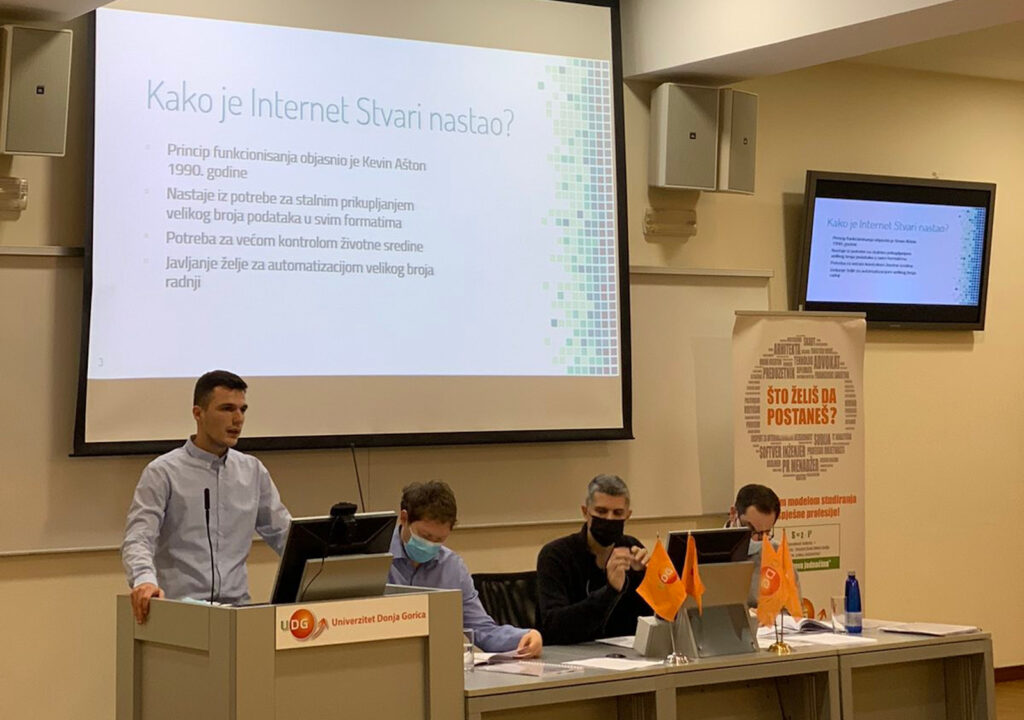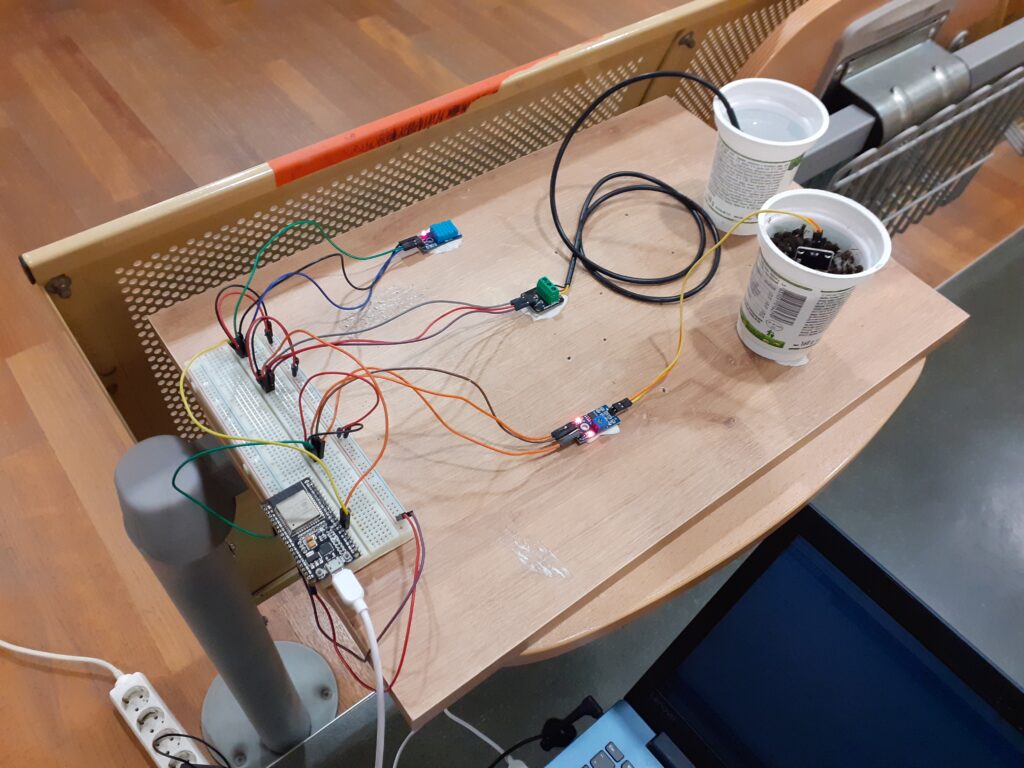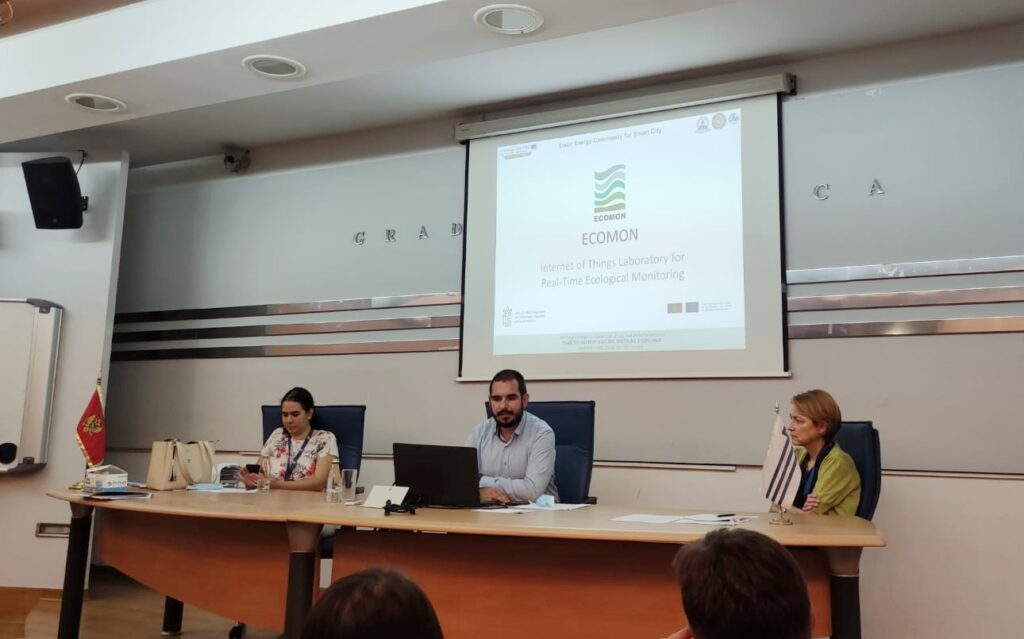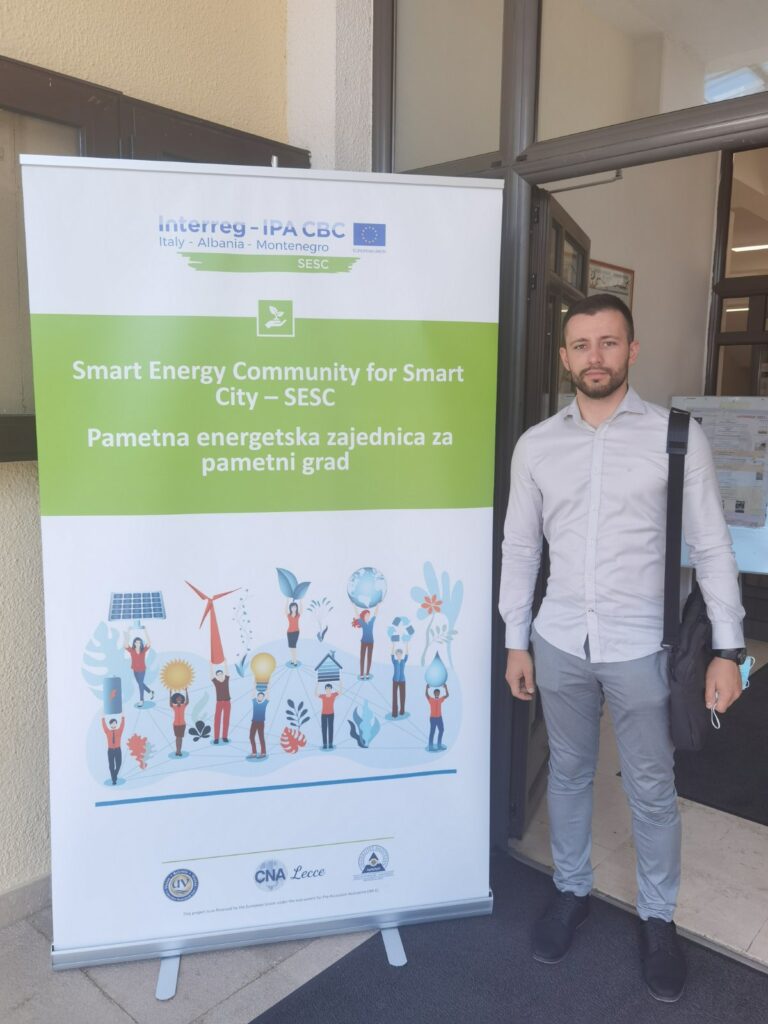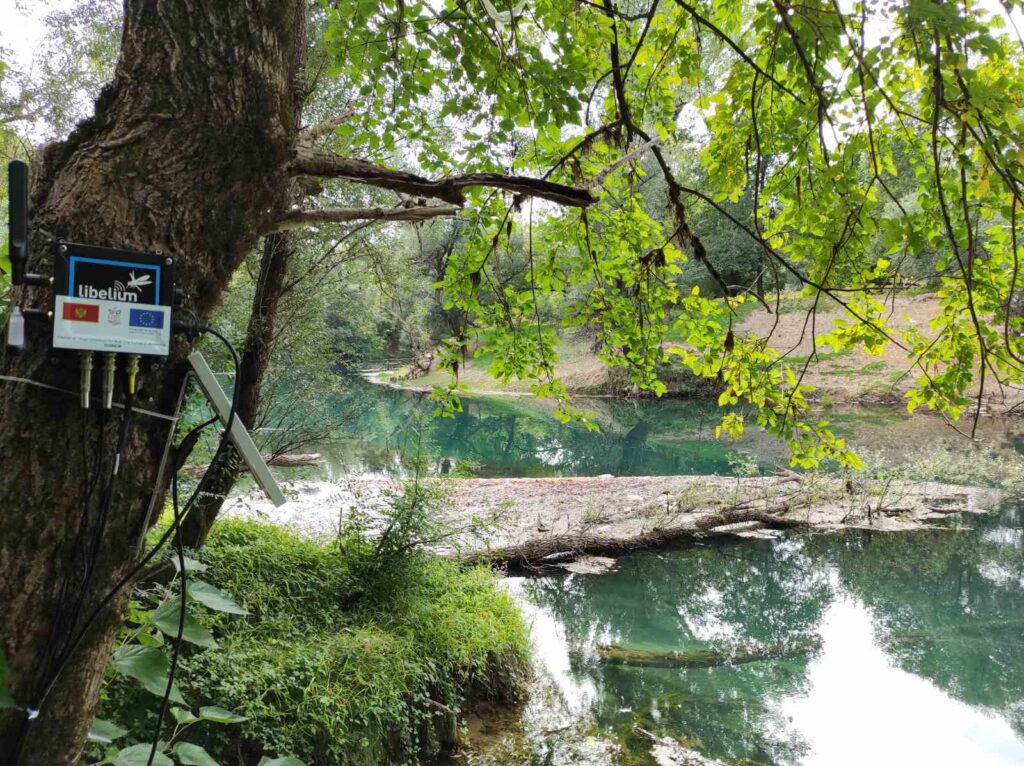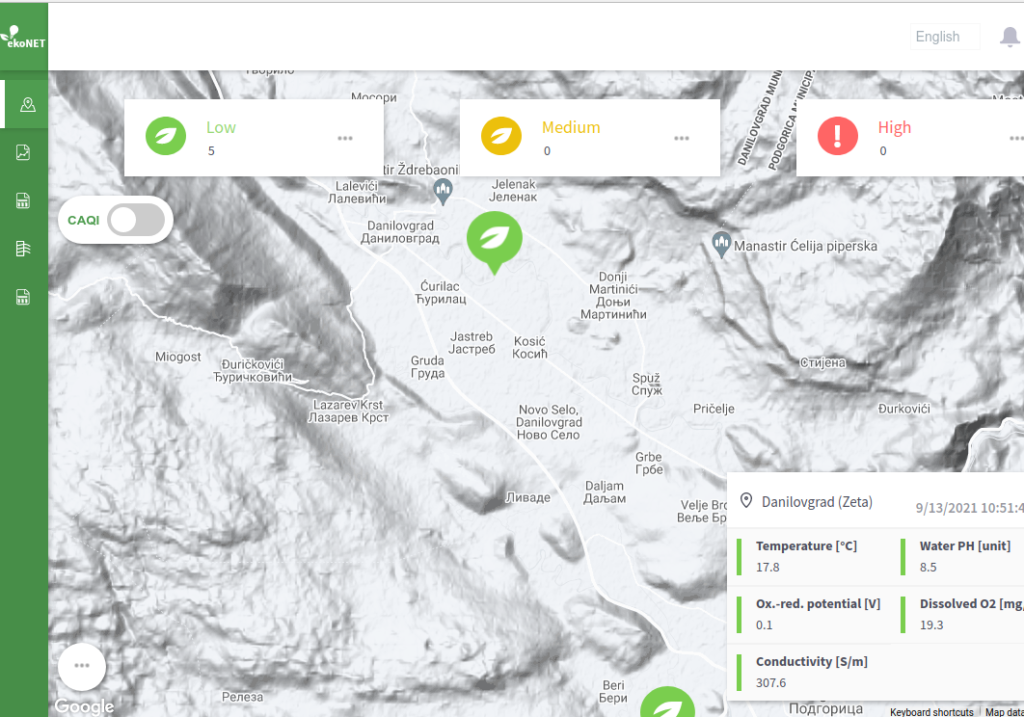Our student at the Faculty of Applied Sciences and Technologies, ms Teodora Ukšanović, defended her BSc thesis in Mathematics today on the use of time series in analysis of air pollution parameters. Ms Ukšanović worked under mentorship of prof. Nataša Kovač.
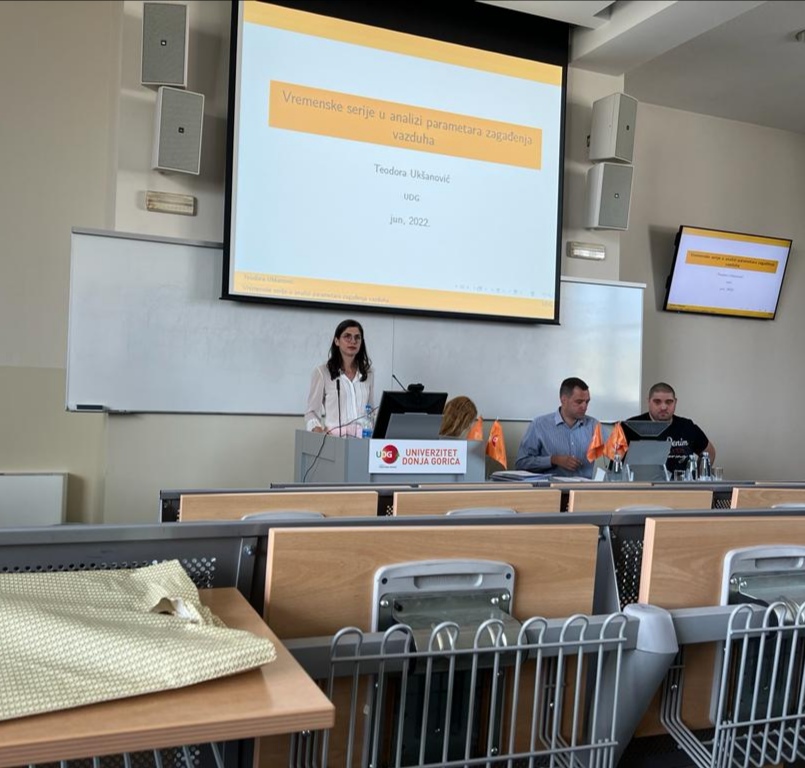
ANSTRACT – How time series are presented as stochastic processes is given an overview of the terms that describe the mentioned processes, so it is roughly below the theory of the time series itself. In the analysis of time series, the waves are especially linear stochastic processes, as a class of stochastic processes. There are 3 groups of linear processes used to model time series. These are self-regressions process (AR (p)), the process of moving media (M A (q)) and the autoregressive process of moving middle (ARM A (p, q)), which is a combination AR (p) and M A (q). How non-stationary time series can be transformed into stationary ones, which enables this transformation model autoregressive integrated moving average ARIM A (p, d, q). In the last chapter will describe a method for analyzing and forecasting air quality.
